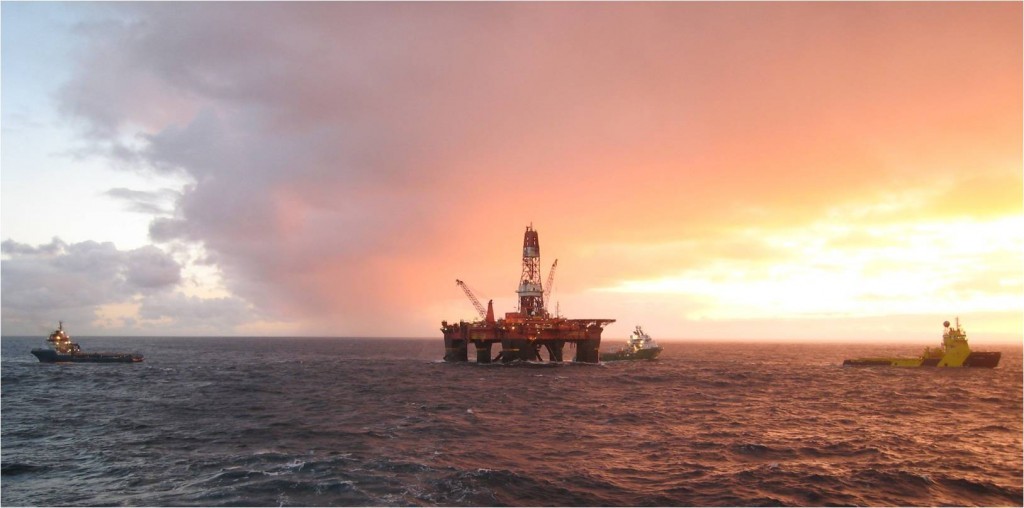
The need to slash costs is the number one challenge for the oil industry, according to a major research project by Energy Voice, but leaders also believe crude prices will bounce back above $100.
In an exclusive, industry-wide Energy Voice research project, dubbed Energy 2050 – securing our future, nearly half of the respondents said they were confident in the return of $100 oil.
The research, which had nearly 900 respondents from the exploration and production, service, financial and government sectors, found the participants had an overwhelming positive perspective.
A total of 44% respondents thought oil would recover to more than $100 by 2020, 48% said it would sit within the $60 to $100 range and only 7% expect oil price to fall below $60.
The groundbreaking research led by Energy Voice, and done in partnership with Ernst & Young, Robert Gordon University, FifthRing, Burness Paull and Douglas Westwood, is part of a year-long global initiative.
The full findings will be discussed and debated today at a sold-out industry event at this year’s Offshore Technology Conference (OTC).
Panelists include award-winning author Loren Steffy, British Houston Consul General Andrew Millar, BP’s former Vice President for the Gulf of Mexico Kevin Lacy, Professor Paul de Leeuw and chairman Philip Rodney.
The research analysis supports a $60 to $100 oil price return between the end of this year and beginning of next dependent on continued market cyclicality and volatility.
According to Douglas Westwood, an oil price environment as weak as $33 a barrel is deemed possible only through a combination of unexpected increases in supply and significant demand destruction created by another economic recession.
The research also gauged current industry challenges, the impact of oil recovery, international and regional opportunities and diversification.
Access to finance ranked lowest on current business challenges for the international community.
Instead, market uncertainty and cost reductions ranked number one and two as the respondents’ main concerns.
The oil price has dropped by 50% between June 2014 and March.
The dive is a result of a dynamic duo, according to the research findings.
It said: “This downturn was driven by market oversupply mainly as a result of the USA shale revolution and the unanticipated robust OPEC production.
“The combination of overproduction and a relatively weak demand in the post-recession climate have led to uncertainty surrounding oil price recovery and some delays in Capex-heavy projects.”
Access to a skilled workforce ranked in the middle of the table.
In the UK a high cost base was deemed the number one challenge facing the industry, followed by global economics and the oil price.
Between 2000 and 2013, the global oil price grew by 14% and gas production by 40%.
However, E&P Capex soared by 374%, in real terms, to $682billion, according to the research.
Despite the various challenges respondents expressed positive views regarding the potential of widening the international market.
A total of 64% of UK respondents, 71% of international respondents and 80% of all financial respondents said they were seeking international opportunities.
Africa (38%) and the Middle East (36%) ranked as the top two target regions for all participants.
East Africa has the potential to become a natural gas hub driving subsea Capex, according to the analysis.
Annual deepwater well completions in Africa are expected to reach 118 in 2021- equating to more than a third of the world’s total.
In contrast, North America and Europe rounded out the bottom of the table as potential targets with only with only 18% and 8% of respondents respectively ranking them as their top priority.
“North America proves to be the least attractive region for new business opportunities out of Europe. The lack of future business development opportunities in North America reflects an already well-supplied and potentially over-supplied market,” according to the findings.
The full research findings will be discussed at today’s event. It is the first of five of targeted research waves aimed at gauging and recoding current industry climate.
It’s hoped the project will spark industry debate and discussion, and will play a critical role in navigating the way ahead.
DC Thomson Editor-in-chief Damian Bates said: “We’re really excited by this significant research project that we aim to conduct over a number of months and years.
“It will be be a fascinating insight into the oil and gas sector; a litmus test of the challenges and opportunities that exist in the North Sea, Gulf of Mexico and beyond.
“We’d ask you to take the opportunity to add your views to this major piece of work. The next phase starts next week – get involved.”
Recommended for you
